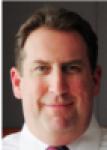by
Joel Gurin, Chief of the Consumer and Governmental Affairs Bureau
 I’m writing this post at the end of my first month at the FCC, and a week after coming back from the Consumer Electronics Show (CES) – one of the largest annual conventions in the country, and a benchmark event for all of us who care about consumer technology and communications. Before I share some insights from CES, I’d like to let you know a few things about my background and how I’ve come to be at the FCC.
I’m writing this post at the end of my first month at the FCC, and a week after coming back from the Consumer Electronics Show (CES) – one of the largest annual conventions in the country, and a benchmark event for all of us who care about consumer technology and communications. Before I share some insights from CES, I’d like to let you know a few things about my background and how I’ve come to be at the FCC.
I’ve been involved in consumer issues throughout my career – as a journalist, book author, magazine editor, Web strategist, and advocate. What brought me to the FCC, as head of our Consumer and Governmental Affairs Bureau, was my 15 years at Consumer Reports. I began there as Science Editor, was Editorial Director and Editor of Consumer Reports magazine for three years, and then served as Executive Vice President of the parent organization, Consumers Union, for almost a decade. During my time as Executive VP, I oversaw editorial, publishing, product testing, and other areas, and directed the launch and expansion of our website at www.ConsumerReports.org. That website is believed to be the largest paid-content information-based site in the world, with more than three million subscribers.
My years at Consumer Reports taught me that consumers have a more personal relationship with communications products and services than they do with almost anything else they buy. At Consumer Reports, our readers couldn’t get enough information about smartphones, internet service providers, online services, digital TV, and the rest of the communications ecosystem. It’s not surprising. Communications technology is central to everyone’s life. We use it every day to connect with our families, shop, find entertainment, do business, and learn about social issues that are central to our democracy.
Read more »












